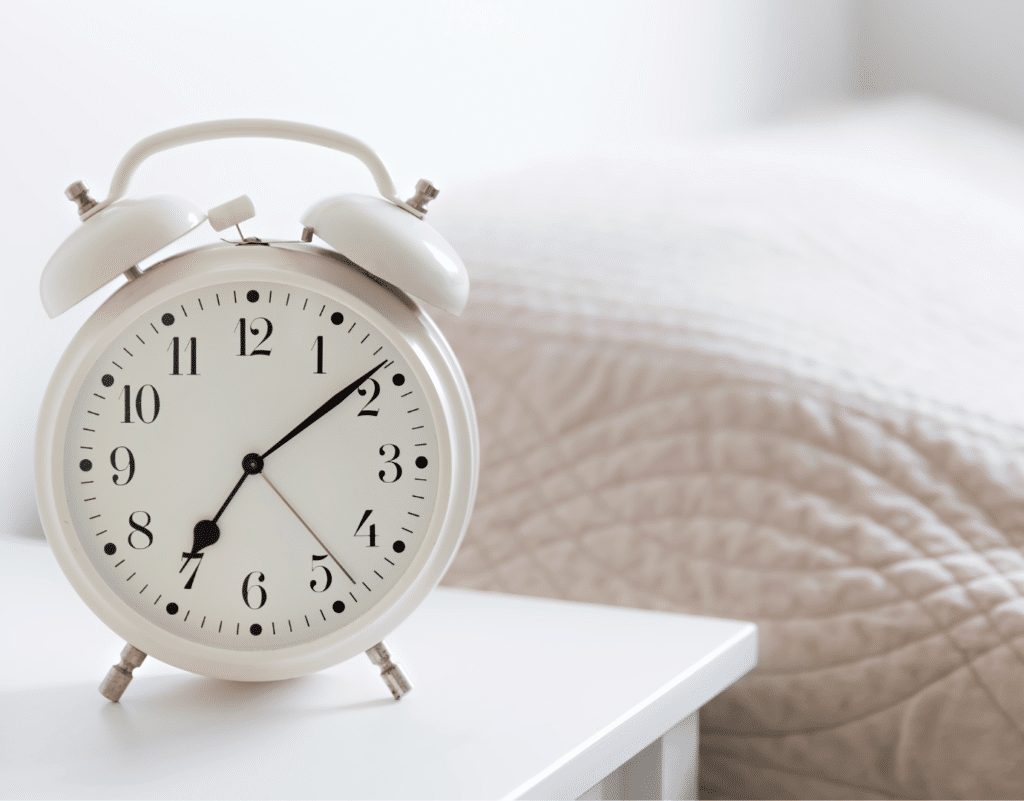Wellness in the workplace truly starts with your mindset. Your emotions, mood, level of attentiveness, and focus all factor into your mindset.
Sleep is a pillar of all of those things. Without sleep, our bodies and minds start to fail us. Mindfulness has also been proven to enhance memory, mood, and emotion.
We’re going to discuss the connection between sleep and mindfulness in the workplace, giving you some actionable tips for corporate wellness. We hope the ideas below give you a little context for the importance of sleep and mindfulness practice.
Let’s get started.
What Is the Connection Between Sleep and Mindfulness?
In the mindfulness-sleep equation, it’s clear that sleep is the dominant force. You can live without mindfulness, you cannot live without sleep.
So, the first thing to do is assess whether or not you’re getting a good night’s sleep. If you’re not sleeping well, the next step is assessing how poor sleep is affecting your overall life. How’s your focus at work, for example?
Are you mindful throughout the day and do you have a relative grasp over your emotional swings? Odds are that your mindfulness took a hit with your lack of sleep.
We can turn the equation on its head and look at things from a mindfulness-to-sleep perspective. Mindfulness can improve the quality of your sleep by reducing the number of stressful or anxiety-inducing thoughts. Further, lower blood pressure and healthy interpretations of daily events brought on by mindfulness can improve sleep.
Don’t take our word for it, though. According to Harvard and JAMA Internal Medicine, mindfulness fights insomnia and improves sleep. One hand feeds the other, with mindfulness being more difficult without sleep and vice versa.
Tips for Getting a Good Night’s Sleep
Mindfulness can’t be the only thing you practice to improve your sleep, though. Unfortunately, there are numerous factors in modern life that do more immediate damage to sleep that mindfulness can’t fully conquer.
The first and simplest step you can take to improve sleep is reducing screen time before bed. A general rule of thumb is the closer the screen is to your face, the more difficult it will make sleep.
Meditation Practice
Meditation is a great way to bring your body into a state of rest. A brief meditation before bed will regulate your heart rate, calm your mind, and bring your body into a state of relaxation.
You don’t have to get too fancy with this practice. Set a time to meditate before you brush your teeth or go through your nighttime routine. Sit there for as long as you like, but five or ten minutes will work just fine.
Find a comfortable position on a pillow, on the ground, or in a chair. Start focusing on your breath, noting when you shift from in to out breaths. Allow thoughts to enter and pass without grabbing onto them with your attention.
When you notice your awareness shifting away from your breath, don’t be hard on yourself. Just acknowledge the distraction, and shift your awareness back to your breath.
The benefits are inherent in the practice, so even an “unsuccessful” or distracted session will help to bring you down for sleep.
Regular Routines
Note that regularity and routine are important for sleep. If you can enter into a schedule that regulates your circadian rhythm, it should be easier to fall asleep and wake up at the correct times.
It’s wise to learn more about your circadian rhythm and understand how this very real biological clock impacts our levels of alertness. Your circadian rests on the principle that bodies sleep when it’s dark and rise when it’s bright.
The better we can correlate our sleep with the setting and rising of the sun, the more aligned we’ll be with our circadian rhythms. That isn’t to say that you need to run to bed when you notice the sun setting, only that it’s best to start winding down when it gets dark.
You start to generate a healthy relationship with sleep when you do this with consistency. A regular schedule is far more effective than an inconsistent one.
You might notice improvements in mood, energy, alertness, focus, and even happiness.
Mindfulness for Improving Sleep Classes
One of the beautiful things about mindfulness is that you can tailor it to benefit different aspects of your life. While benefits tend to blossom in numerous areas, you can curate your practice to focus on a particular area.
Sleep is one of those areas, and Twello offers a course specifically dedicated to mindfulness for improving sleep. In our Mindfulness for Improving Sleep course, we illuminate the three key barriers to restful sleep and explore how mindfulness plays a part in each area.
Further, the course gives you principles and tenets of healthy mindfulness practice. These tips can lead to more mindful work, and a sense of corporate wellness in your workplace, and apply to corporate mindfulness initiatives your company might have.
Twello also offers a suite of other courses pertaining to mindfulness, emotional intelligence, resilience, and corporate wellness.
Introducing a corporate mindfulness strategy could have myriad benefits for your organization. The benefits of one individual can make a big difference to an entire organization, but a workplace filled with mindful employees might perform better than you could imagine.
Want to Learn More About Wellness in the Workplace?
Sleep and mindfulness are key contributors to wellness in the workplace. The effects of sleep deprivation and low quality of sleep seep into all aspects of personal and professional life.
We’re here to help you with tools to get out of your slump whether it’s company-wide or limited to your personal experience. Contact us for ideas on improving workplace productivity, book a class, or learn more about healthy sleep habits.



